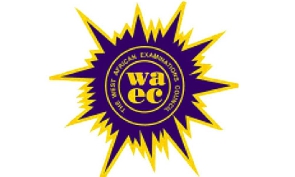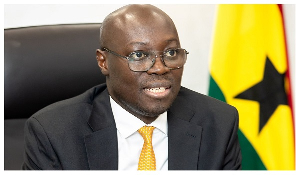The West African Examinations Council (WAEC) says it uses one marking scheme in assessing all Basic Education Certificate Examinations (BECE) across the country.
“The Council has never used two different marking schemes for candidates of BECE in private and public schools.”
Mrs Wendy E. Addy-Lamptey, Head of National Office, WAEC, said this at the Council’s forum on BECE Grading System in Accra.
Over the years, there have been calls for Ghana to review the BECE Grading System.
The forum, which was on the theme: “The fundamentals of the BECE Grading System,” brought together representatives from the Ghana National Association of Teachers (GNAT), National Association of Private Schools, National Council of Private Schools, Ghana Education Service, Ministry of Education, among others.
The BECE was first administered in the 1990s as a result of the 1987 Educational Reforms.
The reforms came with the introduction of Continuous Assessment Scores as a component of the total score to be used for grading.
The Standard Nine (Stanine) Grading system was adopted for the examination.
The forum, therefore, seeks to bring clarity to the BECE grading system and help stakeholders to appreciate the performance of candidates better.
Mrs Addy-Lamptey regretted that various media reports had suggested that the Council was using two different marking schemes for Private and Public school candidates.
“Let me use this opportunity to state that a final marking scheme is developed for each subject at the end of the Preliminary Coordinating meeting and all examiners use this final marking scheme to mark scripts of all candidates for that subject.”
According to her, the issue of the performance of BECE candidates had been topical over the years.
“This is even more so because that is used in the selection of students into Senior High Schools.”
Mr Pateh Bah, Registrar of WAEC, in a speech read on his behalf, said the council used equal marking schemes for private and public schools, adding, “The schemes used by the council were impartial. There is only one marking scheme for all, our scheme does not favour anyone.”
Mr Bah, therefore, urged the media to do their fact checks before publication.
Dr Kafui Etsey, Associate Professor at the University of Cape Coast, who chaired the forum, said research had shown that if Ghana changed from the BECE marking system, the council would rather record more failures and a reduction in the number of brilliant students.
Prof. Estey said Ghana could adopt its own system of assessing the youth and other countries could also learn from it.
He, therefore, stressed the need for the Ghana Education Service, the Ministry of Education and the Council to meet and make some amendments to the grading system to suit Ghana.
General News of Monday, 5 June 2023
Source: GNA

















